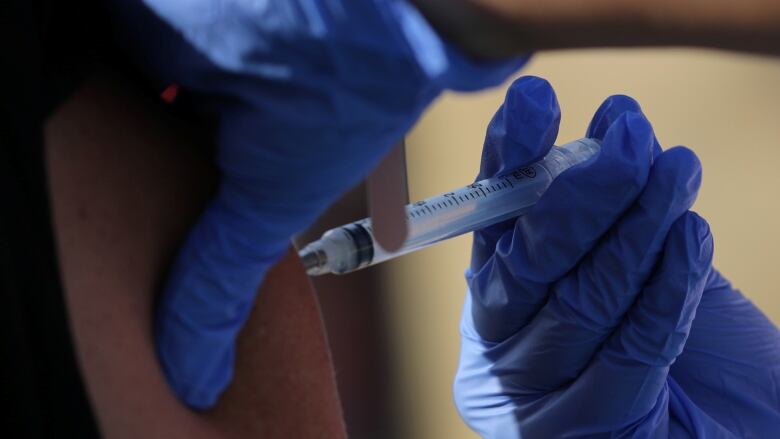Last year's flu vaccine wasn't very effective. This year's looks more promising
Health officials believe they have a better vaccine match for this year's expected flu strains

If you hadthe flu vaccine last season and still got the flu, you might bewondering, why bother this year?Last year, the vaccine was indeed a bit of a disappointment.
The Canadian Sentinel Practitioner Surveillance Network researches the annual efficacy of the vaccine. Itfound last year's shot was only 17 per cent effective in preventing respiratory illness from H3N2overall, the dominant A strain of influenza, andonly 10 per cent effective for adults aged 20 to 64.
It was better at warding off respiratory illness caused by the dominant B strain of influenza; about 55 per cent effective.
Still, not great.
According to the Public Health Agency of Canada'sFluWatch, there were 64,403 lab-confirmed cases of influenza in Canada last season, mostly Influenza A/H3N2. There were 302 deaths directly attributed to influenza, including nine children.

So who decides what the vaccine will be? It's based on reams of data.
Experts in influenza from around the world conduct virus surveillance year-round. That data goes to the World Health Organization.
Twice a year, the WHO organizes consultations to review thedata and predict what strains of the flu will be most prevalent in the coming season. Itmakes recommendations about what strains of the virus the flu vaccine should contain, and then individual countries decide which viruses the vaccine in their country will contain.
In Canada, the National Advisory Committee on Immunization (NACI) uses the WHO information to help inform its recommendationson the vaccine to the Public Health Agency of Canada (PHAC).
As Canada's 2018-19 flu season begins, thisyear's vaccine looks more promising. Here's why:
Updated vaccine formulation
The Atlanta-based Centers for Disease Control (CDC) says the 2018-19 season vaccine has been revised to better match circulating viruses: the B/Victoria component was changed and the influenza A (H3N2) component was updated.
This year's vaccine contains two A strains of the H1N1 and H3N2 viruses, and two strains of the B/Victoria and B/Yamagata. Health officials think that will be a good match.
Mild season in Australia
The best though not fool-proof way to get an idea of what kind of flu season we're going to have in Canada is to look to Australia, according to health experts. And right now, the view is good. Flu season there, which is coming to an end, has been relatively mild.
According to Australia's Department of Health, flu activity measured by the proportion of patients admitted directly to hospital intensive care units and deaths attributed to influenza has been low to moderate. Severity measured by the proportion of people with flu-like illness taking time off work and the burden on hospitals has been low.
So if the season is expected to be mild, why get the shot?
Even in a normal season, Health Canada says influenza-related complications can landabout 12,000 Canadians in hospital and kill3,500. Even if you don't care whether you get sick, health officials urge vaccination to protectmore vulnerable people around you.PHACconsiders the following people at high-risk of influenza-related complications or hospitalization:
Pregnant women;
Adults and children withchronic health conditions;
Residents of nursing homes and other chronic care facilities;
People 65 years of age and older;
Children younger than 60 months of age;
Indigenous peoples.

And speaking of kids...
Health Canada has approved either the shot or the nasal spray for kids aged twoand up. So protecting them doesn't need to come with a painful jab.
Children between sixmonths and nineyears old who have never had a flu shot need two doses, with a minimum of four weeks in between.
Kids who've received a flu vaccine in the past only need one dose going forward.












_(720p).jpg)


 OFFICIAL HD MUSIC VIDEO.jpg)
.jpg)



























































































